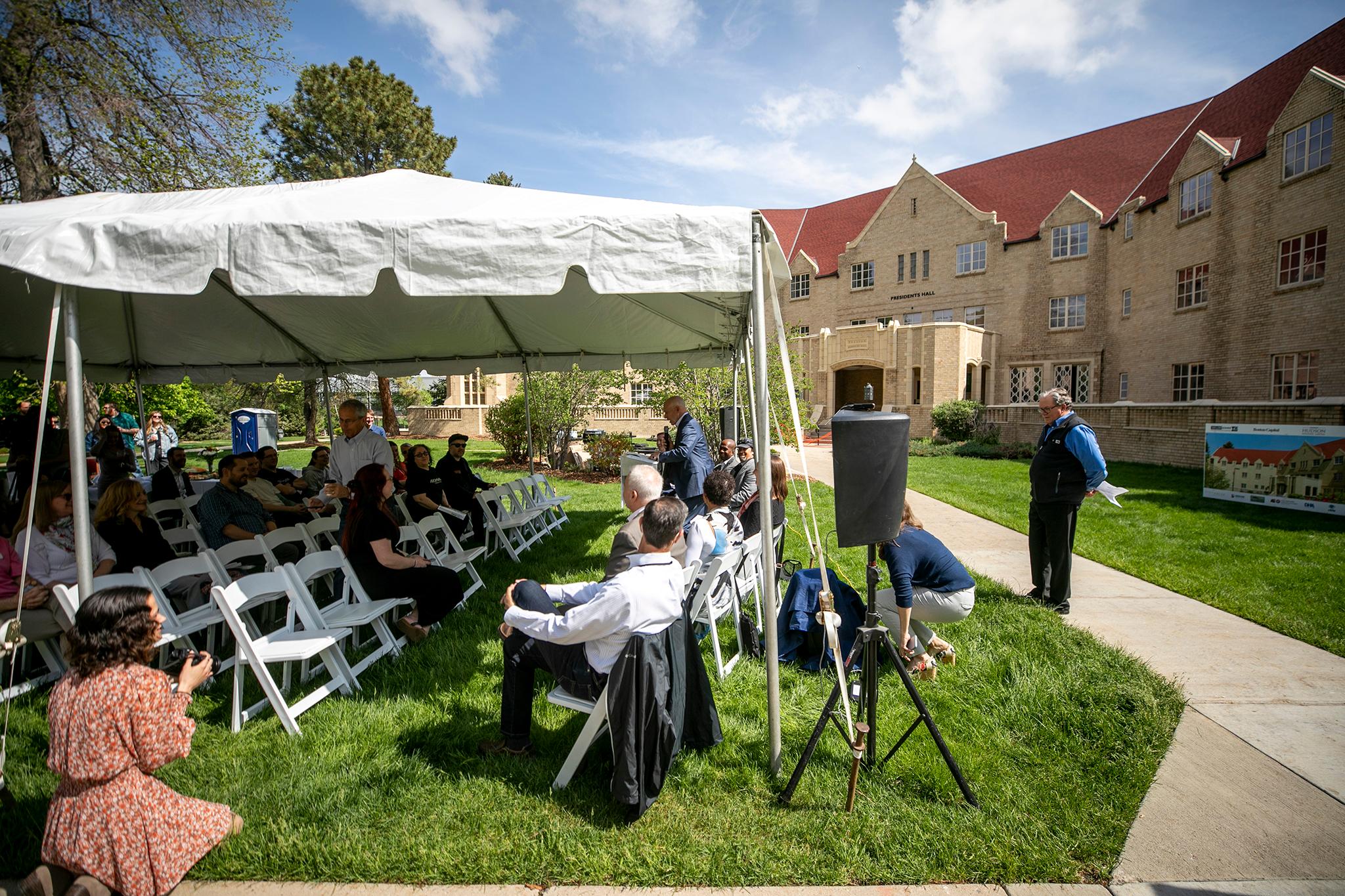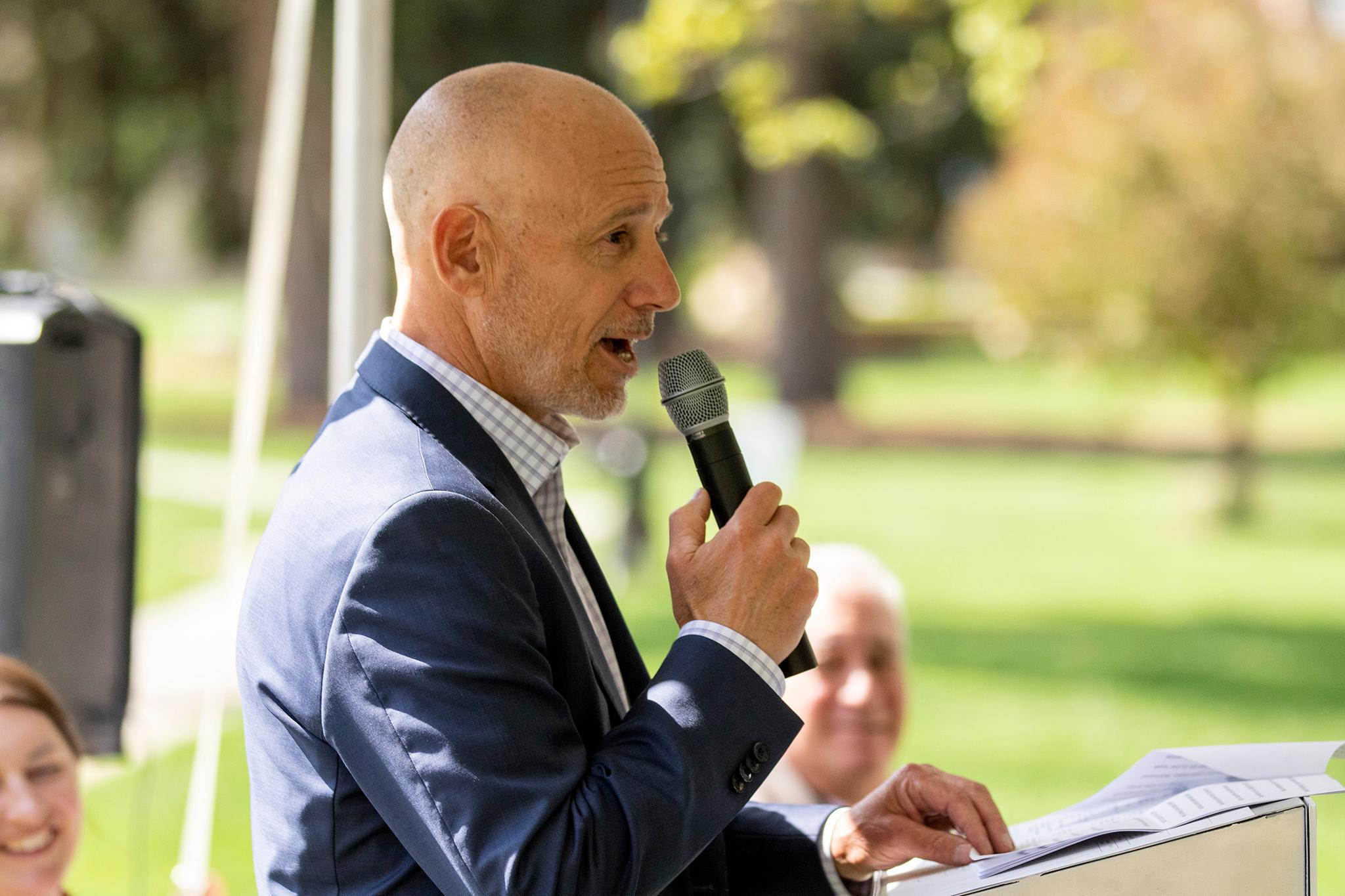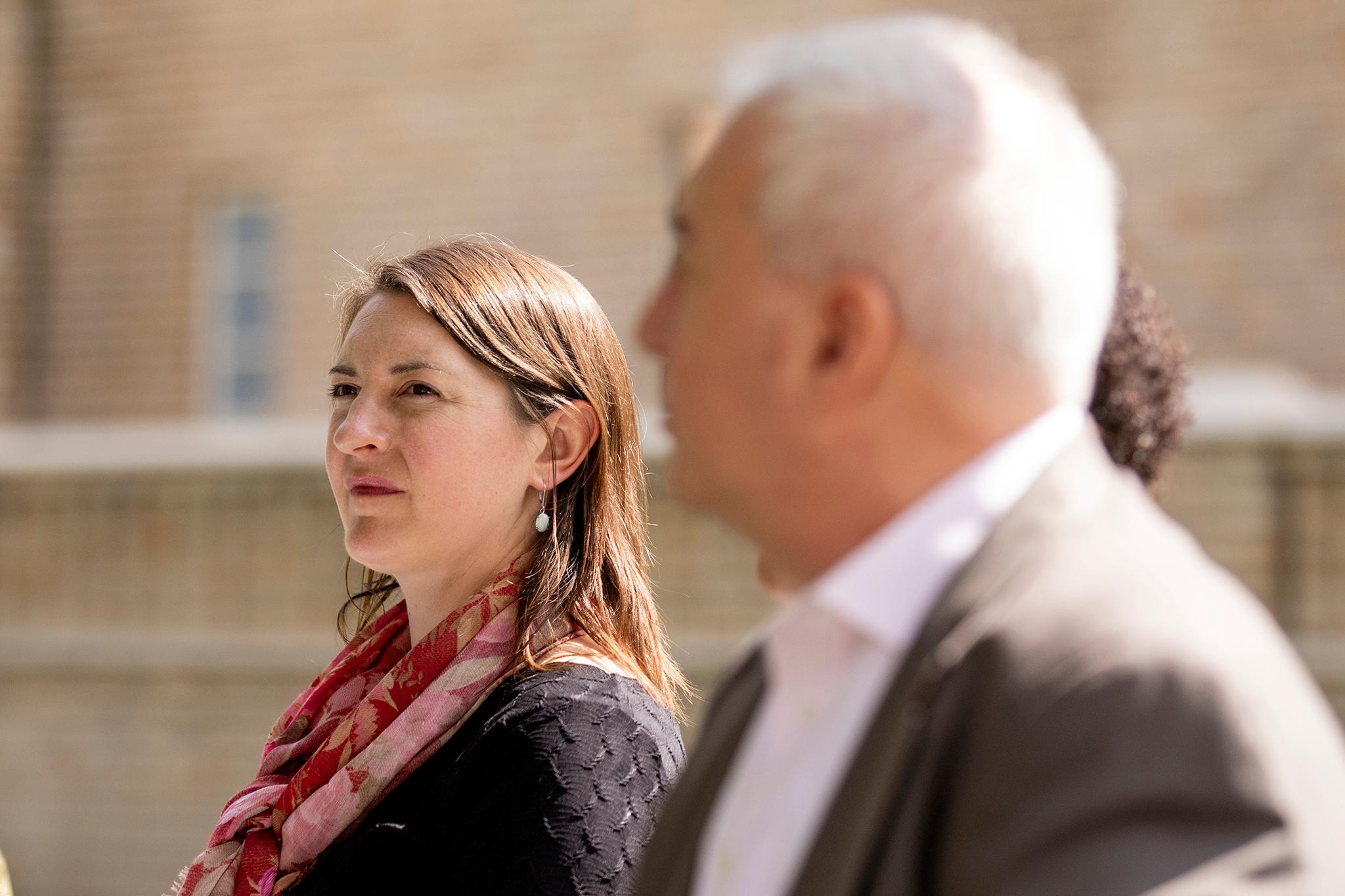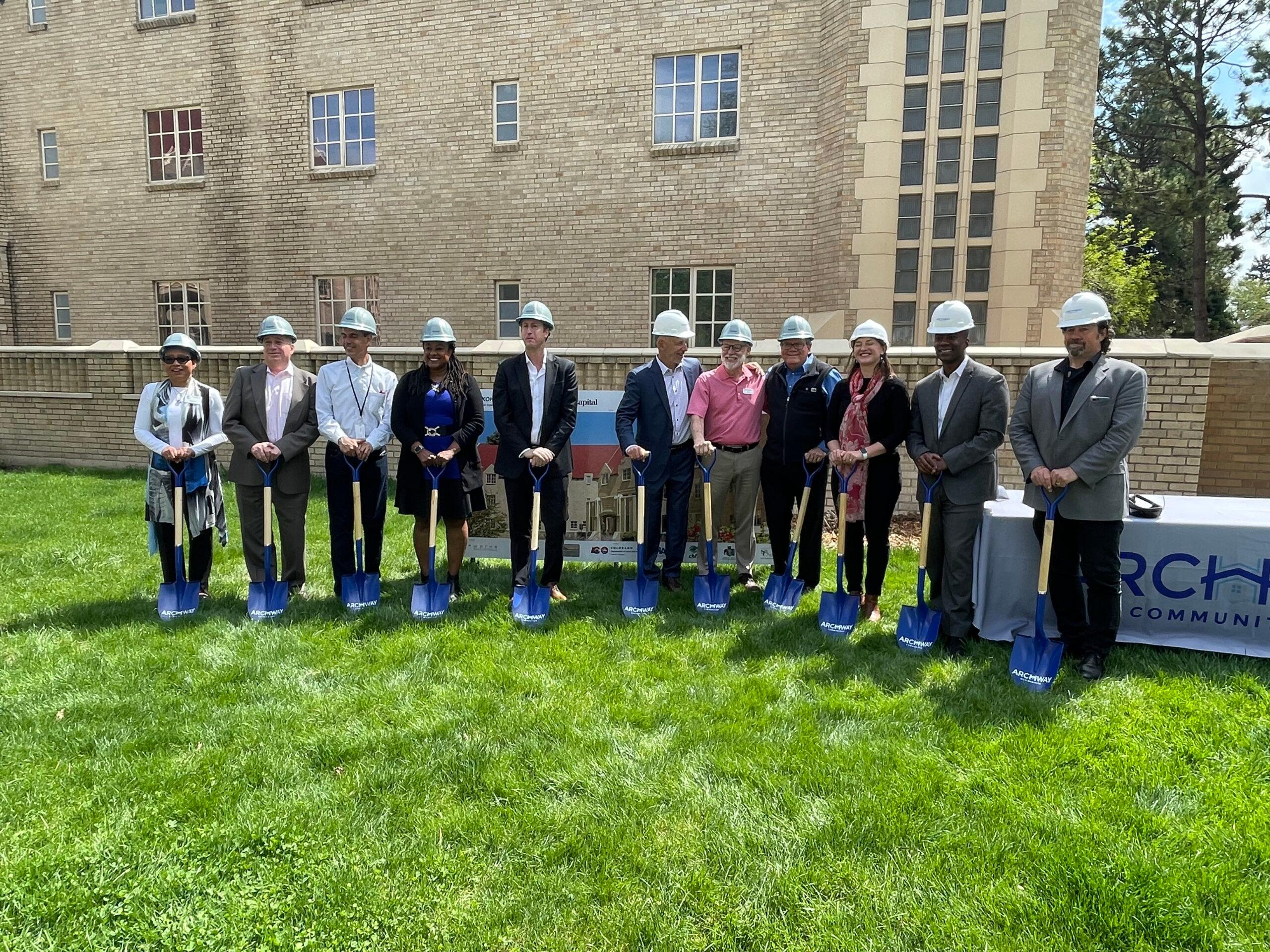The Urban Land Conservancy's massive transformation of the former Johnson and Wales campus into the Mosaic Community Campus in South Park Hill hit a big milestone on Thursday.
Nonprofit leaders, financiers, and city and state brass participated in a groundbreaking to celebrate turning four dormitories into 154 units of income-restricted housing. The dorms will be remodeled as a mix of studios for individuals up to three bedrooms for small families.
Most units will be for people making between 30% and 60% of the area median income (currently $24,650 to $49,260 for an individual or $31,650 to $63,300 for a family of three), and 10% of them will be reserved for people making below 30% of the median income (currently under $24,650 for an individual or $63,300 for a family of three).
The units should begin to be available in 2024.

The campus, as a whole, includes community kitchens from Kitchen Network, the St. Elizabeth's School, the Denver School of the Arts, and affordable housing built directly by the Denver Housing Authority.
The nonprofit developer Archway Communities, which purchased the dormitories from the Urban Land Conservancy, is heading up this part of the development.
Archway's project's total budget is $66.5 million -- $3.85 million of which came from the city's Affordable Housing Fund and much of which came through tax credits from the Colorado Housing and Finance Authority.
These projects are massive collaborations with multiple for-profit, nonprofit and government entities that can take years to assemble.

"This is not easy work, and we all know this," said Sebastian Corradino, the head of Archway Communities.
This particular development included using historic preservation funds -- and rules -- making it all the more complicated. But also, possibly, palatable to the South Park Hill neighborhood and other surrounding communities, which Councilmember Chris Herndon said have offered few criticisms -- a rarity when it comes to new development.
"It's so thrilling to see what Archway is going to do to bring affordability to South Park Hill, taking these historic buildings and making them part of the community," Herndon said.
Efforts to build new income-restricted housing and increase density are often pitted against historic preservation. In this case, both forces worked together.
"We know that everybody deserves a safe and affordable roof over their head," said Laura Brudzynski, the city's Chief Housing Officer and head of the Department of Housing Stability. "This project adds character and beauty to this area, in addition to providing that pathway to stability. So we're excited to not only celebrate this project and the affordable units that are coming, but also the historic renovation underway that this project really helps to celebrate. This groundbreaking and support today for our near opening underscores how Historic Preservation can also provide much-needed affordable housing within our community."
The nonprofit's board member Lee Berg, a pastor at the United Church of Christ in Washington Park, said "This is a miracle in my world, to have this many organizations come together, lean into it and make it happen."

The impact a project like this has on individuals with housing they can afford is huge. Yet the dent projects like these put in the overall need is small.
After the groundbreaking, David Nisivoccia, head of the Denver Housing Authority, told Denverite that roughly 60,000 income-restricted units are currently needed and the demand has risen over the past year.
Including the remodeling of the dorms, Denver's Department of Housing Stability is currently funding 1,870 units under construction at 31 separate sites across the city. Another 599 are in the works.











